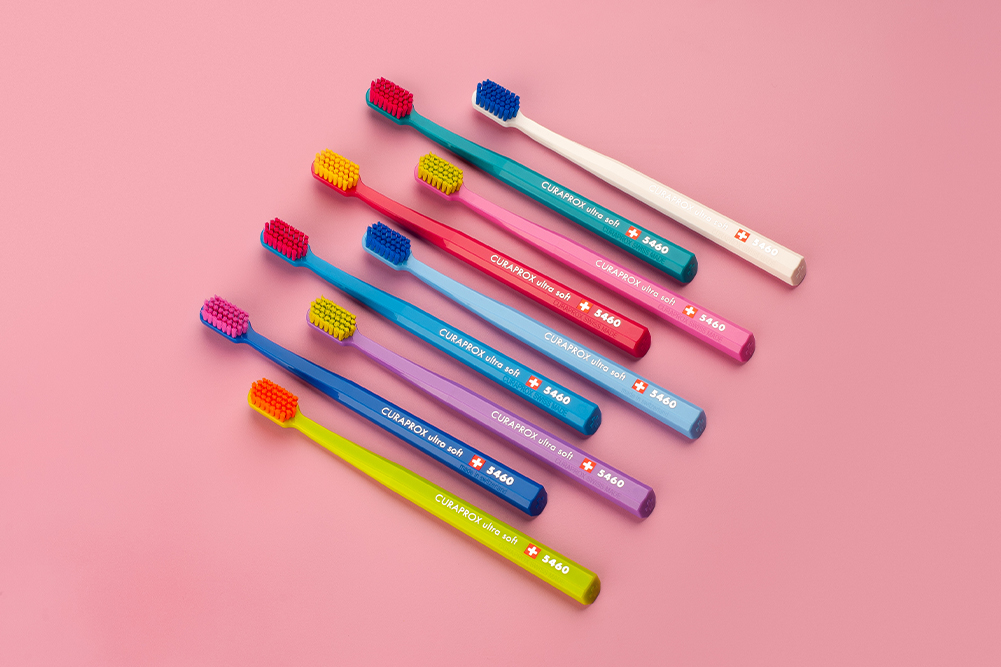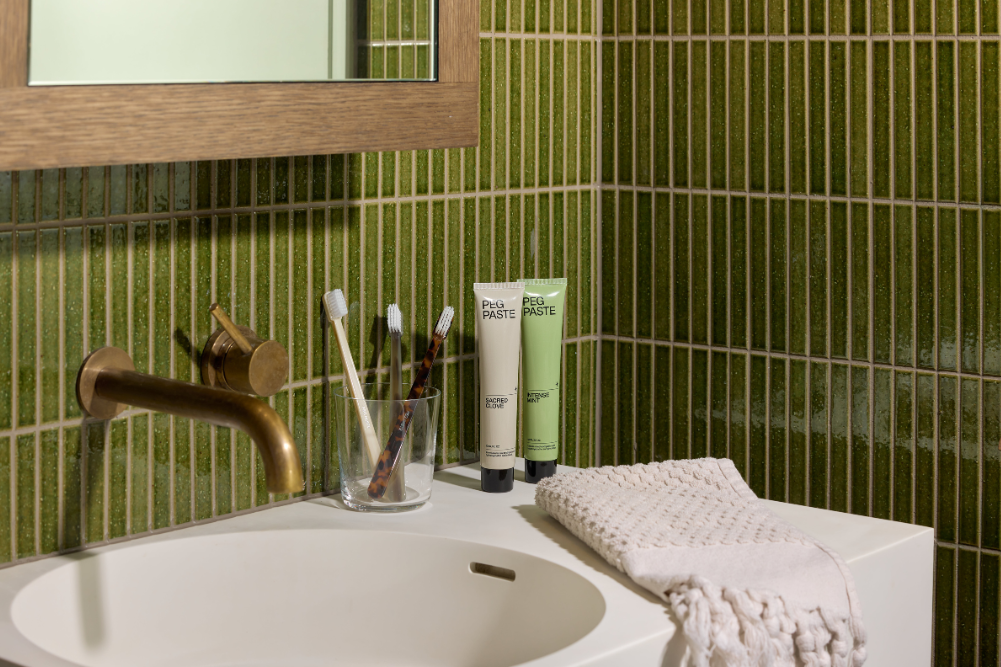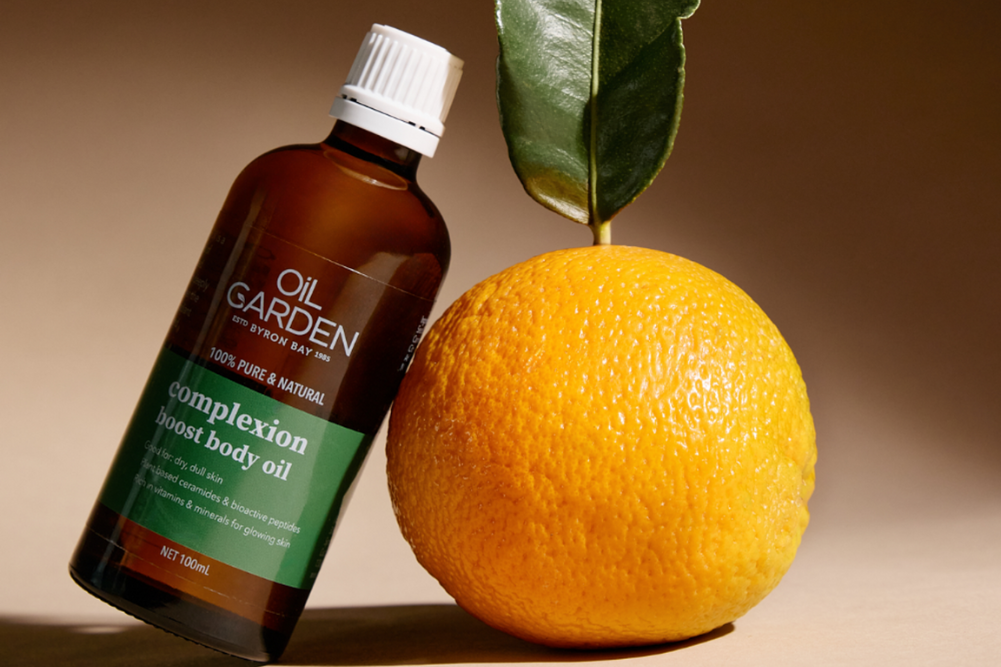A Q&A with the founder of ecostore
Malcolm Rands, the founder of one of New Zealand’s most recognisable homegrown brands, ecostore, dreams of helping people green their homes, businesses, communities — and planet. We chat to him about his chemical-free home and Beauty products.
Your background is in the not-for-profit sector. Tell me about setting up your eco-village, Mamaki.
I’d been living up in Whangarei, north of Auckland, working with their community arts council, which I did for 15 years. The first three households at Mamaki came from the arts council; we bought a block of land and started it in 1985. The ideal behind the council was to use arts as community development and for the previous four years we’d done everything by consensus decision-making and peer reviews, which at the time was radical stuff. We were really interested in the dynamics of community living, so the legal structure and the social structure were really important to us. We weren’t there because we couldn’t make money; we were doing it because we wanted to trade money for time with our young kids. I’m still there most weekends and there are still about 20 people there, who come and go.
How do you feel about Mamaki now?
To me, it’s tarangawaewae, a Maori word that means “a place to stand”: a physical place on the planet where you know you completely belong — your descendants will still be on this piece of land. Most of us don’t have it and a lot of the damage to the planet is because we’ve lost this.
What was the catalyst behind starting up a business?
I was organising a midwinter festival in Whangarei and when the community arts council pulled the plug it shook me to pieces. I knew I had to find a socially conscious way of running business, and that’s what ecostore and the Fairground Foundation is about. The profits of our business feed the work of the not-for-profit one and the two only share values rather than decisions.
How did you start ecostore?
My wife Melanie and I started from the eco-village and dug out under our house to set up a warehouse so we could try things out. We started selling products by mail order in 1993: household cleaners, body and baby products, organic gardening products and organic pet products. I kept on going bigger and bigger, moved to Auckland to set up a shop, got more and more staff, then when my first partner came along — I had to sell down shares to get finance to keep going — they said, “You can’t do everything. You’ve got to think what are you the best at.”
What I was doing really well was the household cleaning and body products. We want all those everyday small tasks you’re doing to be at least no impact on the planet and at least no impact on your health, so that’s why we’ve chosen boring, everyday things.
What Fairground Foundation projects has ecostore funded?
Even after 20 years, we’ve only had one year of profit, because a growing business needs cash to grow, but we’ve done projects. In 1999, one of my five staff was mad keen on organic gardens and kids, so I gave her a day off a week with full pay, and I helped her myself, and we were the first people in the North Island to put organic gardens into schools.
Recently, after 18 months of slog, we got governmental agencies and private companies to work together to cover the ecostore building in downtown Auckland in solar panels. It’s completely zero energy now and is pumping energy into the NZ grid. We set up a system so that it didn’t cost us a penny to do this and our power bill is set forever and is paying off the solar panels. Other businesses in NZ can now do the same thing. That’s a classic Fairground project — taking on tricky, horrible things, figuring out how to do it, creating a successful, commercial model and then sharing back for free to the community and other businesses.
What I’d like to do next is create an urban version of the eco-village. The challenge is how can you live a green, healthy life and feel you are living in a neighbourhood where you belong.
You wanted your products to be free of nasty chemicals. What else does ecostore emphasise?
Our products aren’t going to cost any more than industrial, horrible, chemical things. There are a couple of ecostore products in Australian supermarkets that are the cheapest per use of the whole category and work just as well. The whole idea of Sir Ray Avery, our chemist, is what he calls elegance: the simpler and more elegant the formulations, the less chance you have of having any health effects. We try to use the least ingredients possible.
You’ve always created a clean, professional image for your products. Why?
Eco products are up against a huge prejudice in the community: “I’d like to try that eco stuff but it costs too much and it won’t really work.” How do you break through that thinking? A lot of our design was to get away from these expectations; to be very interesting and cool and hip, and to have design signals so we look like we’re experts.
Which countries is ecostore in now?
New Zealand, Australia, Hong Kong — we’re rapidly expanding in Asia — and we’re in the States as well. Our model is that, once you get to a certain size, you manufacture locally if it’s the most logical thing to do. It’s all about what’s the most eco answer.
What are your goals now, for ecostore?
Go to the planet; take on the big boys. We need huge success stories from our industry — ethical enterprise — and then other people will want to copy. It’s up to me and our company to be a success because that’s the best way we can change the planet.
For more details, visit ecostore.com.au.








